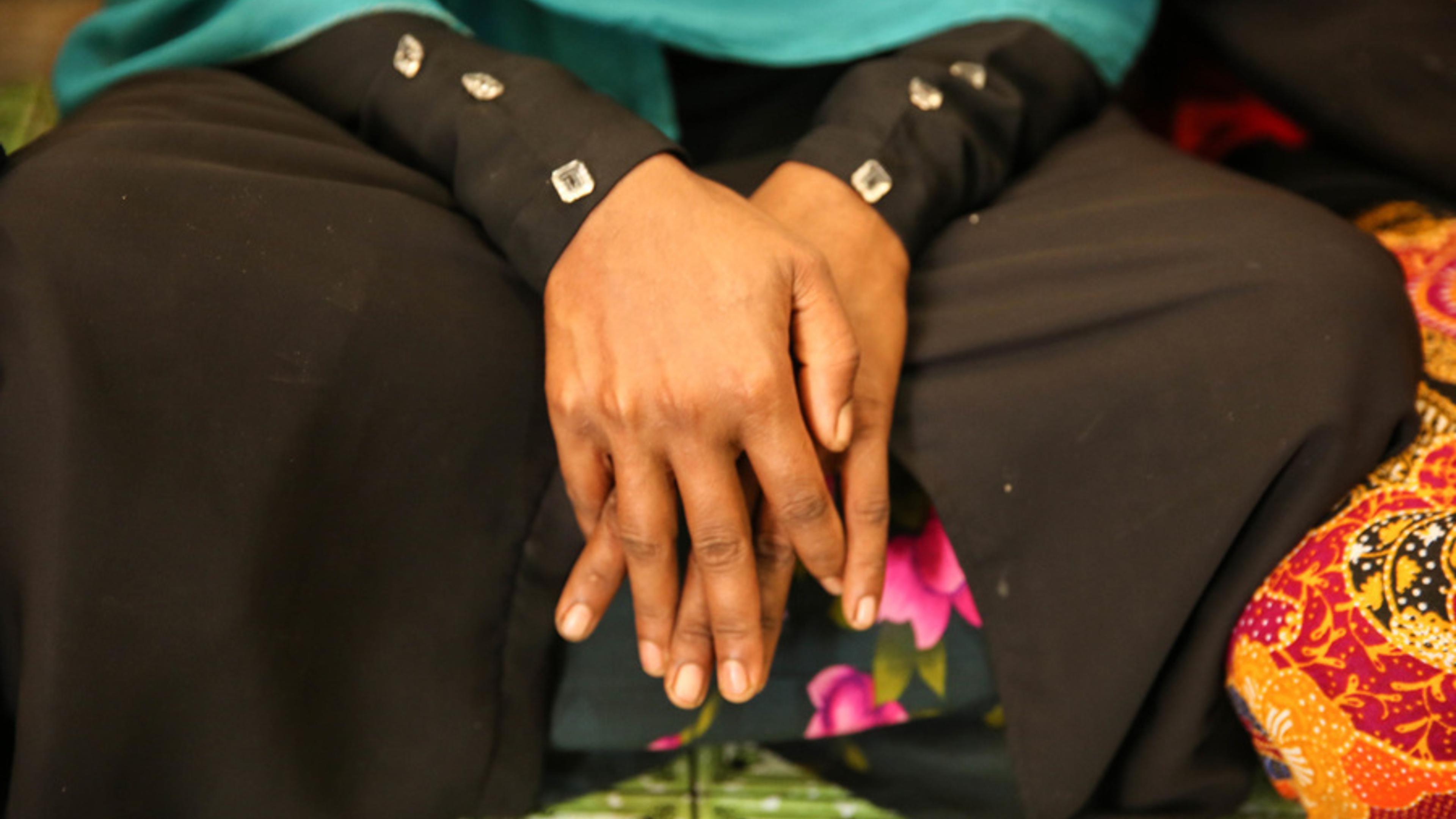Improving menstrual hygiene management for Rohingya women and girls in Cox’s Bazar
 © Olivia Headon, IOM
© Olivia Headon, IOMWhat is the challenge?
Widespread stigma and various social restrictions imposed on Rohingya women and girls when menstruating impacts the way they manage their period. Given that the WASH facilities available in the camp are communal latrines and bathing facilities and that most of the cash for work activities are in the construction and site maintenance sectors- these social restrictions have a direct impact on how women and girls manage their menstruation and access livelihood opportunities.
Through in-depth research and collaboration with Rohingya researchers, IOM developed a deeper understanding of the Rohingya community and the experiences of women and girls to address these gender specific needs. The research found that despite understanding good hygiene practices, women and girls experience challenges with both the quality and quantity of menstrual products available.
What is innovative about the project?
This project aims to partner with the fashion industry in Bangladesh to use deadstock fabric to produce menstrual hygiene pads for Rohingya women and girls. Fast fashion production makes up 10% of humanity’s carbon emissions, dries up water sources, and pollutes rivers and streams. IOM seeks to engage with businesses within the fashion industry to promote circular supply chains and encourage the re-use or repurposing of textiles for as long as possible. Making it possible to lessen the environmental impact of manufacturing these fabrics and reducing the volume of waste.
The innovation in this project lies in the partnership approach and the business model around production and distribution of the pads.
What are the expected outcomes?
The project aims to develop a culturally appropriate menstrual pad using deadstock fabric that can be produced at a scale sufficient to meet the menstrual hygiene needs of all Rohingya women and girls while ensuring environmental sustainability by reducing waste.
Who are the project partners?
This project is led by IOM who will partner with one or more private sector partners.